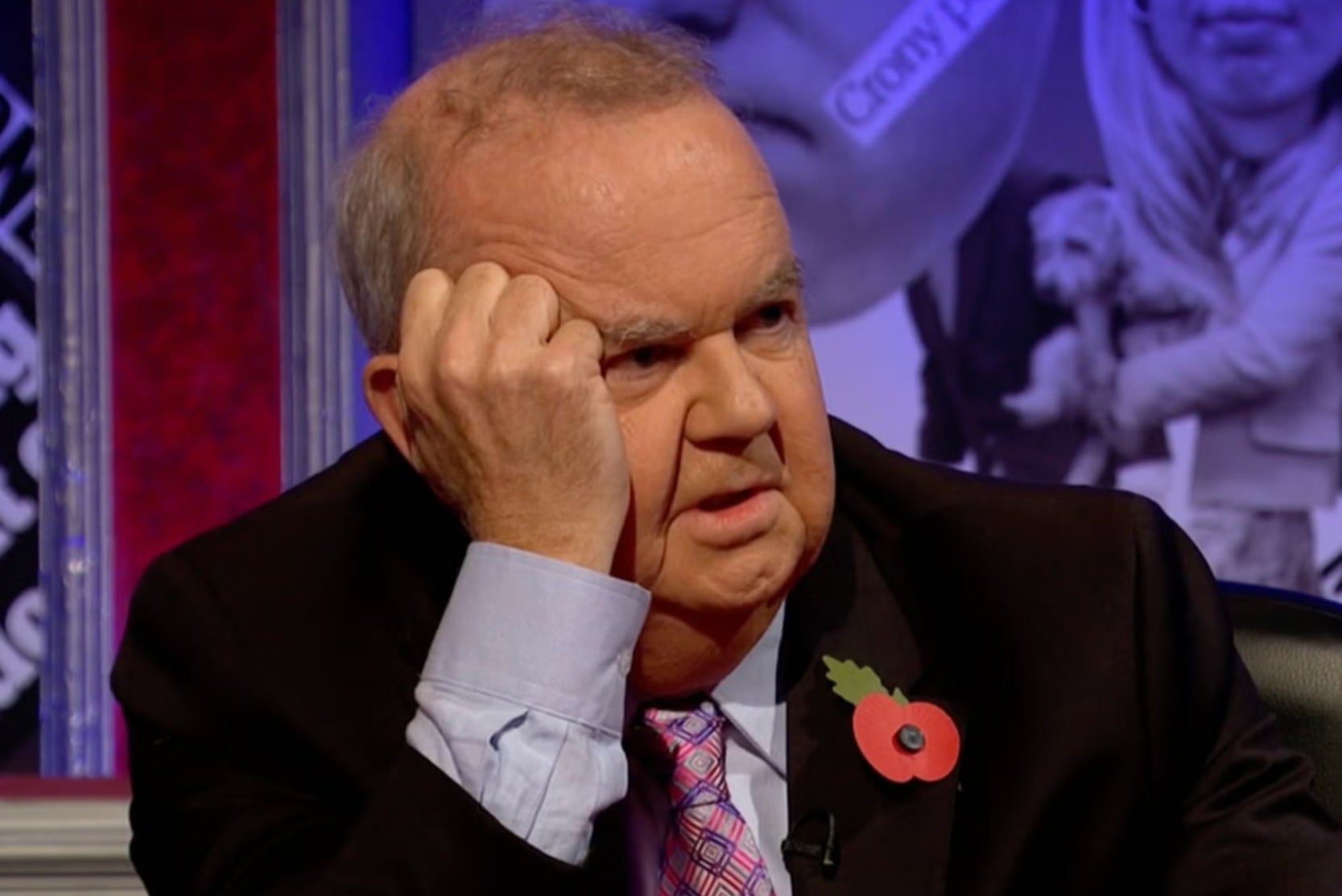Comedy panel shows are tedious and full of men – there’s only one way to save them
Statistics show that TV panel shows still haven’t solved their gender imbalance. Might that be why the genre is feeling so tired, asks Katie Rosseinsky


Your support helps us to tell the story
From reproductive rights to climate change to Big Tech, The Independent is on the ground when the story is developing. Whether it's investigating the financials of Elon Musk's pro-Trump PAC or producing our latest documentary, 'The A Word', which shines a light on the American women fighting for reproductive rights, we know how important it is to parse out the facts from the messaging.
At such a critical moment in US history, we need reporters on the ground. Your donation allows us to keep sending journalists to speak to both sides of the story.
The Independent is trusted by Americans across the entire political spectrum. And unlike many other quality news outlets, we choose not to lock Americans out of our reporting and analysis with paywalls. We believe quality journalism should be available to everyone, paid for by those who can afford it.
Your support makes all the difference.The comedy panel show is starting to become something of an endangered species. Back in 2022, the BBC announced that they were calling time on Mock the Week after 17 years on air. New launches don’t tend to stick around for long before being cancelled. Even the old faithful Have I Got News For You is feeling increasingly tired: it’s not hard to guess where the heavily signposted punchlines are going – why yes, Rishi Sunak is a rather small man, I hadn’t noticed! – which never used to be the case. The genre appears to be teetering wearily on its last legs – and that’s surely in no small part down to the fact that it has barely moved with the times, casting the same, often male, faces over and over again.
Its track record on gender representation is strikingly bad. According to new research from the data scientist Stuart Lowe, who has been crunching the numbers on panel shows for years, the BBC’s drive to reduce the heavily male-skewed gender imbalance on its comedy programmes has plateaued over the past few years, so that the split is currently around 60:40. This movement began in 2014 when the broadcaster’s then head of television, Danny Cohen, pledged that each panel show must – drum roll worthy of a very dramatic policy change, please – book at least one woman for every episode, but has clearly ground to a halt recently and stopped short of actual parity.
Over on the commercial channels, things are ever so slightly better, with women accounting for 45 per cent of stars on shows broadcast on the likes of ITV and Channel 4. But surely one relatively straightforward way of shaking up this languishing format would be to make sure that that percentage is equal – or, whisper it, maybe even over-hiring women for a bit? Because clearly, the current approach just isn’t working.
In other parts of the entertainment industry, it’s been shown that a more representative cast actually reels in the viewers, and is good for business, too. A 2018 study, for example, found that films with female leads tended to outperform movies helmed by male characters at the box office. Last summer, it was the Greta Gerwig-directed Barbie movie that won the Barbenheimer battle for ticket sale supremacy over dad film par excellence Oppenheimer. Recent international data also suggests that younger audiences are more engaged by shows that have a more diverse cast. And if you’re still desperate to get your fix of male comedians joking around exclusively with male comedians? I’m pretty sure you can find multiple podcasts offering just that.
There is a catch to this plan, though, and it’s a pretty significant stumbling block. The lack of women on panel shows is not just the result of commissioners and producers failing to talent-spot brilliant female comics. It’s also rooted in the fact that these programmes are still not particularly tempting places for women to work. “Panel shows are essentially three hours of willy-waving machismo and oneupmanship joke-telling,” a TV commissioner told The Times anonymously. “It’s not a great environment for many female comedians to do their best material, because they have a very ‘blokes down the pub’ feel.”
It’s an issue, the commissioner says, that crops up “constantly” across the industry, and one that QI host Sandi Toksvig railed against back in 2016. “There are panel shows that struggle to get women on, and that’s because the women feel marginalised and stupid, and in the edit are often seen just laughing at the boys and not saying anything at all,” she said. A few years later, the writer and comedian Natalie Haynes offered up a seriously dispiriting account of her experience of having her jokes edited out. “Between the recording and the broadcast, the editors had managed to cut every single thing I’d said,” she wrote in The Guardian in 2018. Edits like this inevitably play into the deeply tedious charge that is still, in the year of our Lord 2024, used to bat down calls for gender parity in comedy: the assertion that women “aren’t funny” – something that can be disproved by anyone who has actually made the effort to a) talk to and b) listen to women.

And in the instances where there is just one “token” woman on a show, it’s often the case that only a certain type of woman makes the cut. “The hot ones and the posh ones are first in line,” the comedian Fern Brady said back in 2014, when Cohen’s panel show pledge was announced (we’ll have true equality, she added, when we see “a woman who is the looks and class equivalent of Adrian Chiles chairing a panel show”). All the more reason, then, for us to keep pushing for more expansive representation of women in these programmes, to better show the breadth of female-led comedy. It’s not just a case of reaching parity but simply about booking the best people, which is exactly what this obviously ailing genre needs. In other words, it’s time for last orders at the bar, lads.
Join our commenting forum
Join thought-provoking conversations, follow other Independent readers and see their replies
Comments